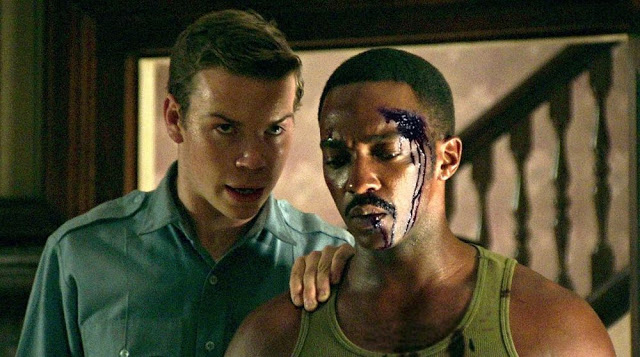Detroit: Black and White and Dead All Over
Detroit opens with a police raid on an African-American nightclub, an edgy incursion that concludes with dozens of black patrons being forcibly loaded into paddy wagons. The movie, which takes place in 1967, was released in theaters on July 28, 2017. That same day, the President of the United States said this:
So, yes: In an era where virtually every American movie feels unnervingly topical—from franchise films to alien adventures to romantic comedies—Detroit resonates even more than most. Directed by Kathryn Bigelow, it rakes up considerable muck, tackling two intertwined issues—endemic racism and police brutality—with unapologetic frankness. This relevance almost automatically makes Detroit worth seeing; it’s rare for a film to firmly exist in both past and present at once. But if you can set aside its political significance (not that you should, of course), what emerges is a strange, decidedly uneven movie. Helmed by a filmmaker renowned for her precision, Detroit is oddly undisciplined, chaotic, even flabby. Yet it is also, at least during its extended central passage, a gripping, nightmarish tale of sweaty panic and helpless inevitability. It doesn’t always seem to know where it’s going, but it sure shakes you up in the process of getting there. Read More

